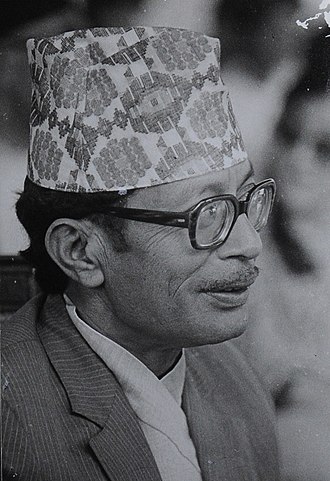INFORMATION
| Profile | www.en.wikipedia.org/wiki/Narayan_Gopal |
Narayan Gopal, born on October 4, 1939, in Kathmandu, Nepal, was a towering figure in Nepali music history, celebrated for his extraordinary vocal talent and profound influence on the industry. Referred to as the “Swar Samrat” or “Emperor of Voice,” he was a versatile singer and composer whose career spanned various genres of Nepalese music, making him an enduring icon.
Narayan Gopal’s musical journey began in a culturally rich environment. His father, Asha Gopal Guruacharya, was a classical musician and provided his initial training. This early exposure to music set the foundation for his illustrious career. He further honed his skills at the Bhatkhande Music Institute in Lucknow, India, where he studied under the tutelage of experts like Bhaskar Rao, learning the intricacies of harmonium and tabla, which broadened his musical expertise and deepened his understanding of classical music traditions.
Narayan Gopal’s career took off in the late 1950s when he started singing for Radio Nepal. His distinctive voice and emotive singing quickly captivated audiences. He released 137 songs throughout his lifetime, each showcasing his ability to traverse various musical styles, from classical to contemporary Nepali folk music. His vocal range and emotional depth allowed him to infuse his songs with a unique sensitivity and resonance.
Some of his most famous songs include:
“Euta Manche Ko Maya le Kati”: A poignant ballad about love and longing.
“Jhareko Paat Jhai”: A melancholic tune reflecting on the ephemeral nature of life.
“Kehi Mitho Baat Gara”: A romantic song that speaks of sweet conversations and the joy of being in love.
“Yo Samjhine Man Cha”: A nostalgic song that touches on themes of memory and loss.
“Yeti Dherai Maya Dii”: A song reflecting on the deep and profound love given by someone special.
“Timro Jasto Mutu”: A soulful song expressing the longing for a heart as kind and loving as the beloved’s.
Narayan Gopal collaborated with many of Nepal’s renowned poets and composers, including Laxmi Prasad Devkota, Hari Bhakta Katuwal, and Gopal Yonjan, producing timeless hits that are still cherished today. His collaborations were often marked by a perfect synergy between the lyrics and his soulful renditions, creating songs that transcended generations.
His contributions to Nepali music earned him numerous awards and accolades. He was bestowed with titles such as “Swor Samrat” and received honors like the Indra Rajya Laxmi Award and the Sajha Puraskar. His work significantly influenced the direction of Nepali music, setting high standards for vocal performance and musical composition.
Despite his professional success, Narayan Gopal faced personal challenges. He suffered from diabetes, which eventually led to his untimely death on December 5, 1990, at the age of 51. His passing was a significant loss to the Nepali music community, but his legacy continues to thrive.
Narayan Gopal’s legacy endures through his timeless music, which continues to inspire new generations of artists. Annual celebrations and tributes in his honor, such as concerts and musical festivals, ensure that his contributions to Nepali music are remembered and celebrated. His influence remains a guiding light for many aspiring musicians, solidifying his status as a true maestro of Nepali music.
Narayan Gopal’s life and work encapsulate the spirit of Nepali music, embodying the rich cultural heritage and the emotional depth that defines the country’s musical landscape. His voice, often described as the soul of Nepal, continues to resonate, reminding us of his exceptional talent and enduring influence.



